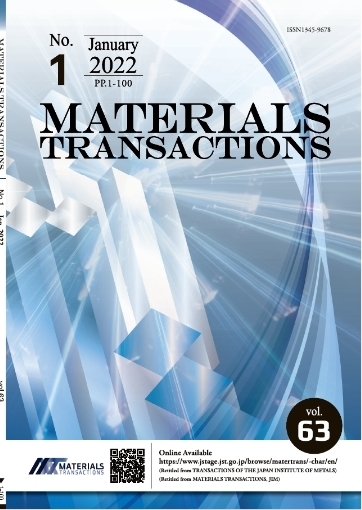Synthesis of Thermoelectric Fe0.98Co0.02Si2 with Fine Ag Dispersion by Mechanical Milling with AgO Powder
Mikio Ito, Koji Takemoto
pp. 1714-1719
Abstract
Synthesis of n-type Fe0.98Co0.02Si2 thermoelectric materials with dispersion of fine Ag particles was tried by mechanical milling of Fe-Si powder with AgO powder and subsequent hot pressing. The AgO phase was reduced by Si, resulting in precipitation of Ag particles, SiO2 phase and ε-FeSi phase. Most of the Ag particles were quite small; less than 100 nm in size. The precipitation of Ag and ε phase significantly decreased both the Seebeck coefficient and the electrical resistivity of Fe0.98Co0.02Si2, in spite of the SiO2 formation. On the other hand, the dispersion of fine Ag particles effectively enhanced phonon scattering, resulting in the reduction in the thermal conductivity in spite of the precipitation of metallic phases. However, the dimensionless figure of merit could not be improved by AgO addition because of the significant deterioration of the Seebeck coefficient. The Si powder addition with AgO powder was found to be effective on recovering the reduction in the Seebeck coefficient.
Readers Who Read This Article Also Read
MATERIALS TRANSACTIONS Vol.49(2008), No.1
MATERIALS TRANSACTIONS Vol.49(2008), No.10
MATERIALS TRANSACTIONS Vol.49(2008), No.10










